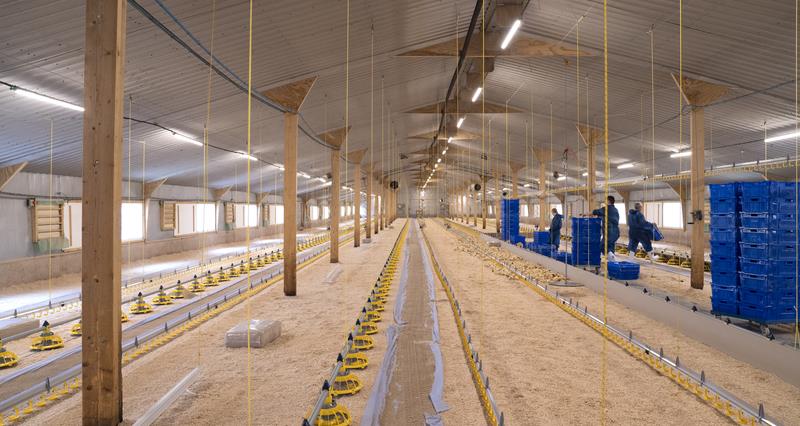They say the future of many businesses within the sector remain in the balance without greater government support and supply chain reform. The NFU’s Poultry Intentions Survey polled members throughout November 2023 on the impact of the past two years on poultry production and farmers’ intentions for the next two years.
It found that almost a quarter of egg producers and 15% of broiler producers were either unlikely or unsure if they would still be producing poultry beyond November next year. The main reason cited for this was a lack of profit.
The survey also highlighted some of the key concerns for both sectors, including:
- The risk of AI (avian influenza)
- The lack of fairness in the supply chain
- High energy prices
- Being undercut by imports
The NFU is calling for greater fairness in poultry supply chains, for poultry producers to be included in the Energy Intensive Industries Scheme, and for a long term strategy from government to be set ahead of any future outbreaks of AI.
NFU Poultry Board chair James Mottershead said: “The sector urgently needs support, certainty and fairness across the supply chain if it is to remain strong in its production of quality, safe, nutritious and sustainably produced poultry meat and eggs.”
The NFU has responded to Defra’s current supply chain review on the UK egg industry, which hopes to end unfair practices in the sector, and calls for a fairer share of risk and reward across the supply chain.
Despite the current low numbers of AI outbreaks across the UK in comparison to 2023, the results of the NFU’s latest survey still show that the threat of the disease still continues to impact the sector.
Both the egg and poultry meat sectors are holding back on investing in their businesses, according to the survey.
The work found that a third (31%) of broiler producers had no plans to invest in their business during the next two years, while 29% of laying hen producers had not invested for the past two years and 33% had no plans to invest going forward.
Those that have invested have done so by supporting staff wages, training and improved equipment. Insufficient returns were blamed by the majority of producers as the reason for remaining cautious.
Rising input costs were a problem, with energy prices (46%) and feed prices (28%) being of major concern to poultry producers.



